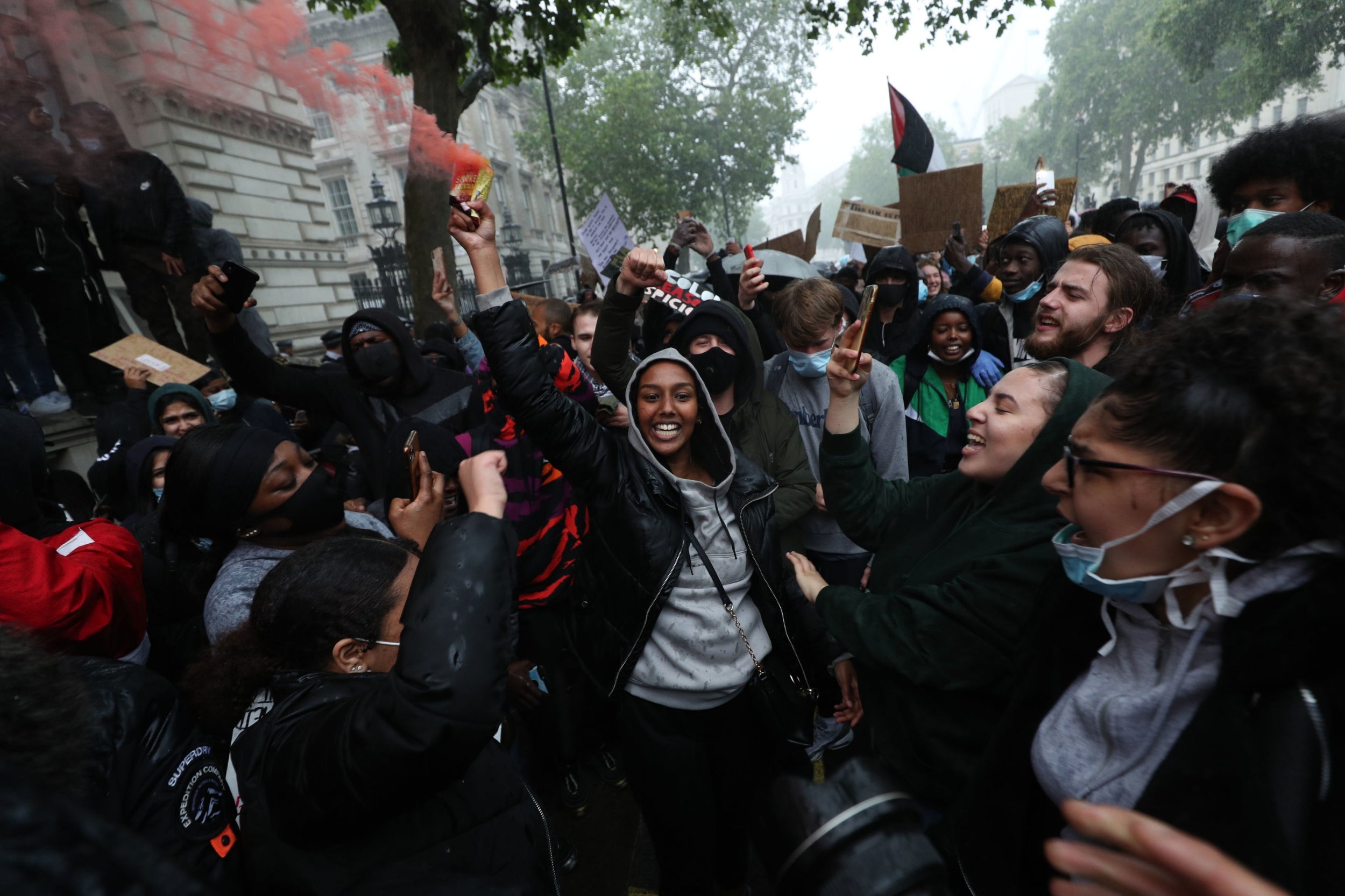Britain has had decades of protest against racial injustice – and we can’t stop now
It is imperative we continue to speak the names and tell the stories of those who died in police custody

Your support helps us to tell the story
From reproductive rights to climate change to Big Tech, The Independent is on the ground when the story is developing. Whether it's investigating the financials of Elon Musk's pro-Trump PAC or producing our latest documentary, 'The A Word', which shines a light on the American women fighting for reproductive rights, we know how important it is to parse out the facts from the messaging.
At such a critical moment in US history, we need reporters on the ground. Your donation allows us to keep sending journalists to speak to both sides of the story.
The Independent is trusted by Americans across the entire political spectrum. And unlike many other quality news outlets, we choose not to lock Americans out of our reporting and analysis with paywalls. We believe quality journalism should be available to everyone, paid for by those who can afford it.
Your support makes all the difference.The murder George Floyd re-ignited a global outcry for racial equality amid the Covid-19 pandemic. At Britain’s Black Lives Matter protests, the names of black people who were killed in police custody or following police contact were plastered on placards. These included former footballer Dalian Atkinson who was killed near his family home in 2016 after being tasered. A PC, Benjamin Monk, is standing trial charged with Atkinson’s murder, which he denies.
There are continuities between the protests of yesteryear and the Black Lives Matter protests. The uprisings of 1981, which again began in Brixton and spread across inner-cities and outer estates, emerged from the '”hard policing” of black communities in particular and poor communities in general and Margaret Thatcher’s government’s “policies of a thousand cuts”. Economic hardships, oil embargos and reduced social services. Crime rose throughout Britain as unemployment soared and young black people were blamed for people’s fears.
Arguments of institutional racism in the Metropolitan Police were rejected in the Scarman Report into the causes of the uprisings and wasn’t accepted until the MacPherson inquiry following the murder of Stephen Lawrence in 1999.
The protests following the death of Cynthia Jarrett and the shooting of Cherry Groce during police raids in 1985 escalated into disturbances in Broadwater Farm and Brixton in London. Anti-police actions spread across the country after police assaults on these two black women.
In August 2011, police officers shot dead Mark Duggan in London. The police’s responses to community protests led to serious disturbances across the country. Just like in 1981 and 1985. Police said they believed he had been armed. This was not the case. These riots were linked to the looting of high streets as the Coalition’s “austerity” policies decimated public services and promoted inner-city youth unemployment disproportionately. The Independent reported in November 2011 that total unemployment rose by 129,000 in the latest quarter, to 2.62 million, the worst since 1994, giving a jobless rate of 8.3 per cent, the highest since 1996.
Fast-forward and history is on loop. 1981, 1985, 2011 and 2020. All carry objectives and proposed outcomes – drastic changes to the police force and its operation in the Black community, acknowledgment for their actions, and justice for those who have succumbed to police brutality and harassment. An estimated 210,000 people took to the streets to protest the racist murder of George Floyd and racist policing in this country in the peak of the pandemic. The protesters demanded that the police be accountable for their actions and their institutionalised racism and justice for those who they have killed, died in their care, been beaten or harassed. However, what was particularly notable was the overall non-violent element during the BLM protests, in contrast to the uprisings of 1981, 1985, and 2011.
In November 2020, Met Police commissioner Cressida Dick acknowledged that the police force was “not free of racial discrimination, racism, or bias” – something Black communities have argued for decades. She did not go far enough. It is imperative we continue to speak the names and tell the stories of those who died in police custody or at the hands of police as conversations on policing in this country needs to happen.
The names of Cynthia Jarrett, David Oluwale, Kingsley Burrell, Mikey Powell, Sarah Reed, and Simeon Francis (to name a few) have become distant memories. As an African proverb proclaims: “Until the lions have their own historians, the story of the hunt will always glorify the hunter.”
Join our commenting forum
Join thought-provoking conversations, follow other Independent readers and see their replies
Comments